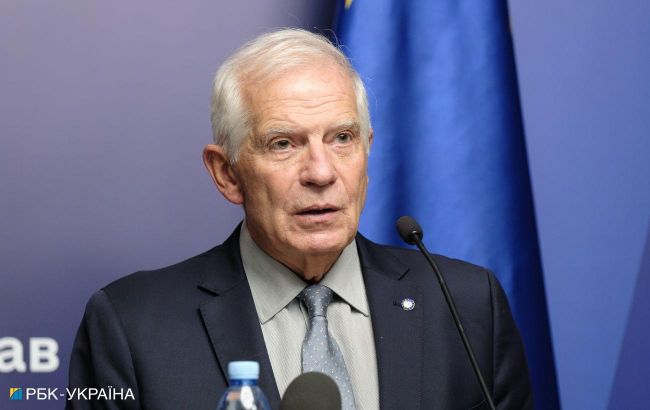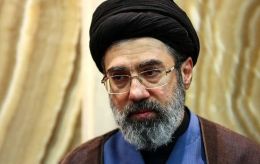No light at end of tunnel: Borrell acknowledges increasing intensity of hostilities in Ukraine
 EU Foreign Affairs Chief Josep Borrell (Photo: Vitalii Nosach, RBC-Ukraine)
EU Foreign Affairs Chief Josep Borrell (Photo: Vitalii Nosach, RBC-Ukraine)
Despite significant sanctions imposed by the European Union against Russia, which have significantly weakened its military machine, the war against Ukraine continues. The intensity of hostilities on the front is escalating, according to a statement from the EU High Representative, Josep Borrell, at the Investors Forum for EU-Central Asia Transport Connectivity.
According to his words, Russia's war against Ukraine serves as a vivid reminder of the critical importance of collectively defending the fundamental principles of the United Nations. This is the best way to ensure peace and security in the world.
"The sovereignty and independence, and territorial integrity of any country should be indisputable. And we must avoid going back to a world where 'might makes right' and where powerful countries can change borders unilaterally," Borrell emphasizes.
He stresses that to protect these principles, the EU has imposed significant sanctions against Russia, which have significantly weakened its military machine.
"And if I can say it, the intensity of the fighting increases and we do not see the light at the end of the tunnel," adds the EU High Representative.
Borrell notes that for anti-Russian sanctions to be effective, complete cooperation from partners is required.
"We are following closely the trade between us, between Central Asia countries, with them and Russia. We try to analyse which are the mechanisms that make sanctions being circumvented. We have to increase our cooperation on that," emphasizes the head of EU diplomacy.
The 13th package of EU sanctions against Russia
The EU has begun discussions on a new package of sanctions, intending to approve it by February 24, 2024.
Possible sanctions were discussed on January 18 at a meeting of EU ambassadors, where member states debated on how best to support Kyiv in the long term.
According to Politico, Russian aluminum production is among the goods that may face an embargo under the new restrictions. Specifically, Czechia wants to include restrictions on the movement within the Schengen zone for Russian diplomats.

